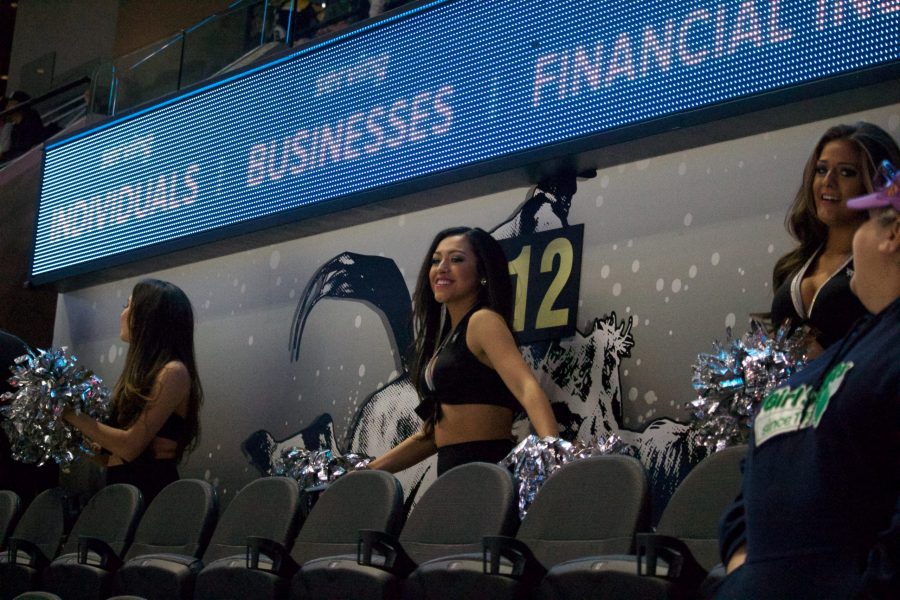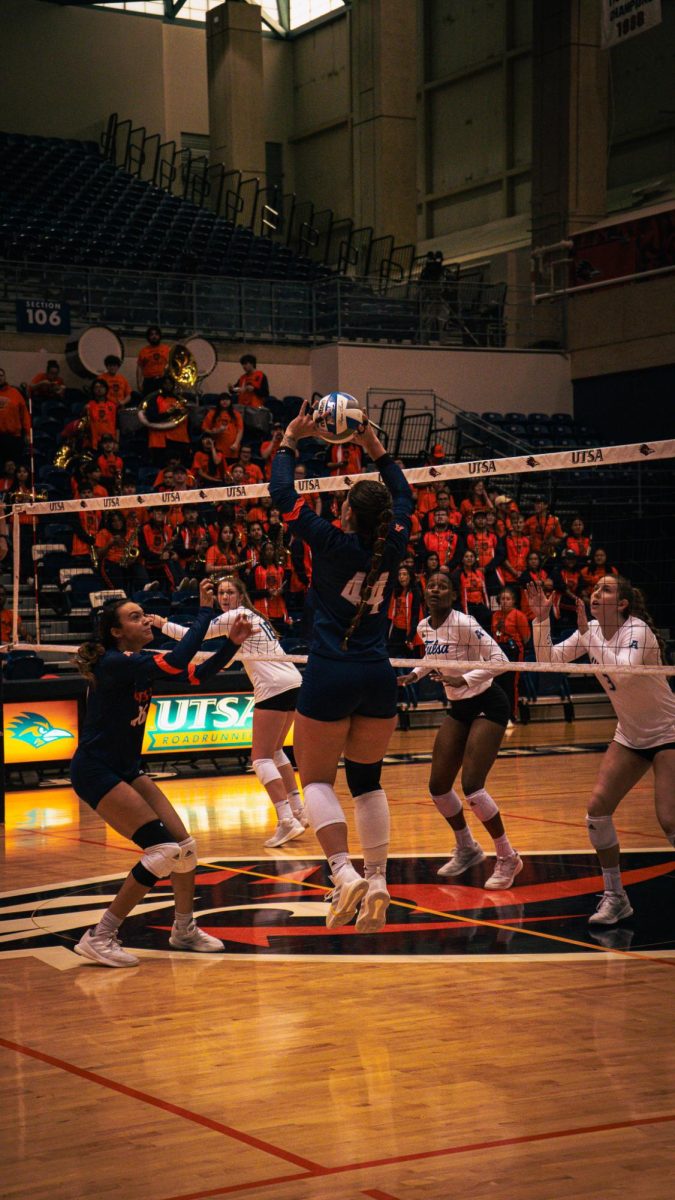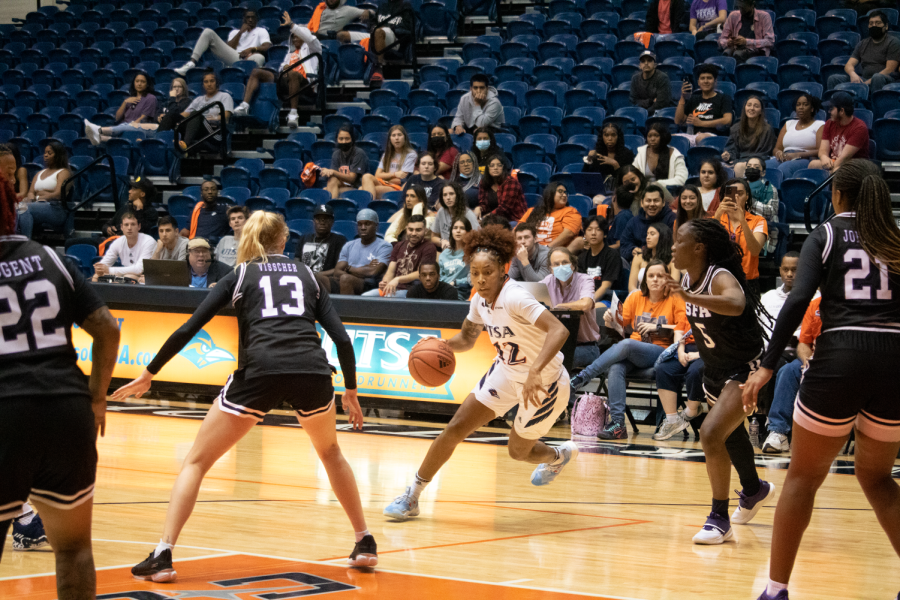It is no secret that professional sports are something of a boys’ club, often to such an extent that women feel like they are not intended to be part of the ceremonies. Sports media coverage often plays a big part in this gender inequity. But sports organizations still tailor their presentations primarily toward cisgender men, and these displays — along with unsavory individual interactions with other fans — often still leave women feeling like they are viewed as second-class sports fans.
Recent UTSA graduate and communication major Kim Martinez, an avid hockey fan and co-host of the Puck on Top podcast, sees the sexist speech commonly used by fans as a big factor in women’s disenfranchisement from the sports they love.
“The fact that fans tend to use sexist chants and slurs when mocking the other team,” Martinez says, “can make being in the crowd feel unsafe or uninviting.”
But it’s not only hate speech that makes women feel excluded. Casual conversations in which their knowledge is questioned or their views are disregarded are just as damaging.
“Oftentimes male fans talk down or re-explain something I already know,” explained Martinez. “They’ll also call into question either my reasons for liking the sport or how qualified I am in my knowledge of the sport.”
Martinez also sees the existence of “ice girls” as a factor that exemplifies and perpetuates misogyny in her favorite sport, hockey. Like dancers in professional basketball and football, ice scrapers are easily the most public representation of women by sports organizations at hockey games.
“Even when they’re mixed genders,” said Kim, “the girls are usually in skimpy outfits that only serve the purpose of sexualizing them for the audience.”
Ice scrapers are often called “ambassadors” of the game, and their work in the community is pointed to as justification for their existence. But the selection process for these supposed “ambassadors” of sport places a strong emphasis on sex appeal, traditional beauty and bodily expectations. Fitting into the pre-made uniforms is one of the most important requirements for the job.
Sexualizing women who perform these roles sends a message from organizations to women that the audience member that matters most to the franchise is the straight man. It also conveys the false and dangerous message that women must meet a ridiculous and arbitrary standard of beauty if they want to actively participate as a part of the organization.
The practice also sends a dangerous message to men who attend sports events: it gives public credence to the notion that women are not supposed to have a more complex relationship with the team than unwavering support.
These direct attempts to appeal to straight male fans at the expense of gender equity perpetuate a mentality that gets at the root of the problem. Men can point to the existence of highly-sexualized dancers as an indicator that the sport is catered specifically to men to justify their attitudes — attitudes that are manifested in dismissal or devaluation of women’s opinions about sports.
Many of the practices that marginalize women who are sports fans require change at the organizational level — professional leagues and franchises need to recognize women as a diverse group with equally diverse interests and uphold their responsibility as social institutions to spur change.
But organizations are resistant to change until they see a change in attitude among the consumers to whom they cater their presentations. And attitude changes are often most effective when they are preceded by behavioral changes.
So the first and biggest step towards dispelling the notion that women are second-class sport citizens is to stop treating them as such and to impose social sanctions upon those who do. That responsibility falls upon each individual fan; those who fail to speak out against sexist attitudes as they witness such displays are complicit in the marginalization of women in sports.












